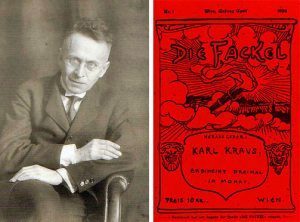Matt Levin at The Paris Review:
 Vienna as a bourgeois, democratic city was never a stable entity. The liberal bourgeoisie came to municipal power in Vienna in the 1860s, yet the authority of the monarchy and aristocracy persisted, though in a weakened form, and, unlike the partial integration of the bourgeoisie into the social world of the British and French aristocracy, it kept its doors barred to the newcomers. And almost as soon as the liberals gained a foothold, a third element asserted itself, a gathering din of nationalist agitations from the patchwork of ethnicities that constituted the Habsburg Empire, each growing restless in the dilapidating imperium. The Liberals, never fully in control, saw their influence hedged and threatened almost immediately.
Vienna as a bourgeois, democratic city was never a stable entity. The liberal bourgeoisie came to municipal power in Vienna in the 1860s, yet the authority of the monarchy and aristocracy persisted, though in a weakened form, and, unlike the partial integration of the bourgeoisie into the social world of the British and French aristocracy, it kept its doors barred to the newcomers. And almost as soon as the liberals gained a foothold, a third element asserted itself, a gathering din of nationalist agitations from the patchwork of ethnicities that constituted the Habsburg Empire, each growing restless in the dilapidating imperium. The Liberals, never fully in control, saw their influence hedged and threatened almost immediately.
By 1895, the populist, nationalist, and viciously anti-Semitic politician Karl Lueger had been elected mayor of Vienna, and liberals cheered as Emperor Franz Joseph undemocratically canceled the election. Nevertheless, Lueger was elected again and finally seated in 1897, canceling any hope of liberalizing even their own home, let alone the empire.
more here.
